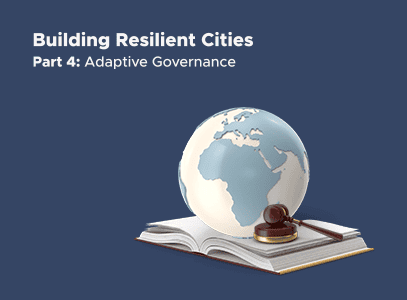Last week was rough for governance experimentation, with Honduras charter city law being repealed and more. The Reedy Creek Improvement District, Walt Disney World’s special governing jurisdiction with tax, security, infrastructure, and building/land-use regulation powers, became the latest casualty in the American culture war as Florida Republicans abolished the district over Disney’s stance on controversial state legislation. In Honduras, the National Congress unanimously repealed the constitutional amendment and enabling law for charter cities, known as Zonas de Empleo de Desarrollo Económico (Zones for Employment and Economic Development) or ZEDEs. The ZEDE law was, at the time, the only law in effect in the world explicitly creating charter cities. It’s now worth taking a deeper look at what happened in Honduras, and what comes next.
To understand why the ZEDE law was repealed, we should start with the history of charter cities in Honduras, up to the present day (for a more thorough history and legal analysis of the ZEDE law, see my Journal of Special Jurisdictions article with my colleague Carl Peterson and Ivette Cano).
A Brief History of Charter Cities in Honduras
In November 2010, Paul Romer met with Honduran President Porfirio Lobo, Lobo’s chief of staff Octavio Sanchez, and National Congress President (and future President) Juan Orlando Hernandez in Miami after the three had seen Romer’s TED Talk on charter cities. Sanchez had long been interested in free cities and other ideas similar to Romer’s charter cities, and so there was obvious opportunity to collaborate. Things progressed quickly after the Miami meeting. In February 2011, the Honduran government passed a constitutional amendment allowing for the precursor to ZEDEs, Regiones Especiales de Desarrollo (Special Development Regions) or REDs, by a 126-1 vote. An enabling law followed in July. REDs devolved significant governing, fiscal, and judicial authority to a special jurisdiction to attract investment and boost growth. A nine-member Transparency Commission was to be created to oversee the REDs. Prior to any official government announcement, Romer preemptively announced the creation of said Commission, to be headed by himself. In addition to Romer, the first four Commissioners included Singapore Power and Temasek Holdings (Singapore’s state holding company) executive Ong Boon Hwee, Center for Global Development President Nancy Birdsall, former INCAE Business School Rector Harry Stratchan, and Nobel Laureate in economics George Akerlof.
The RED project, however, would soon quickly fall apart as tensions between Romer and the government mounted, kept out of the public eye. In September 2012, Romer and the other four members publicly resigned from the Transparency Commission and disassociated from the project after it was discovered that the government had signed an agreement with a private firm, led by Michael Strong, to develop a RED, without consulting the Commission. The government contended that since the Commission appointments were never published in the government gazette (and simply announced by Romer on his own), the Commissioners had no right to see the agreement. The news of this deal kicked off a wave of opposition, as part of the proposed RED was reported included land of the indigenous Garifuna community. However, Michael Strong contends that this reporting was false and that their project was planning to purchase titled, undeveloped ranching land that any Garifuna land was never under consideration to be purchased.
In October 2012, the full Honduran Supreme Court declared the RED law unconstitutional in a 13 to 1 vote after the Constitutional Chamber of the Supreme Court voted 4 to 1 that REDs were unconstitutional on the grounds that the law violated Honduran sovereignty, territorial integrity, and independence. In December, after the same four justices voted down a police reform bill, those judges were removed from office, likely illegally, following a public denunciation by President Lobo.
In January 2013, the ZEDE constitutional amendment was adopted, followed by an enabling law in September, to remedy constitutional issues raised against the REDs. A new oversight body, the Comité para la Adopción de Mejores Prácticas (Committee for the Adoption of Best Practices) or CAMP, was established. The first 21 CAMP appointees were a global collection of conservative and libertarian advocates, officials, businesspeople, and academics, four of whom were Honduran.
With a new law and oversight body in place, future President Juan Orlando Hernandez campaigned heavily on the benefits ZEDEs would bring to Honduras. It would take several years for a project to emerge and various issues to be sorted out at CAMP, but the first ZEDE (what would eventually become Próspera) was finally authorized by CAMP in December 2017. Prior to the repeal of the ZEDE law, three ZEDEs had been established: Próspera (focused on remote work, technological and financial services innovation, and tourism), Ciudad Morazán (focused on light industry, logistics, and affordable housing), and Orquidea (focused on agro-processing). Disclaimer: the Charter Cities Institute provided advisory services to Ciudad Morazán regarding several policy areas in 2020.
Throughout their tenure, significant controversy surrounded the ZEDEs, most notably Próspera. Concerns about land expropriation, indigenous rights, environmental degradation, foreign control of Honduran territory, and other matters ran rampant and were widely reported in Honduran and international media, with wildly variant veracity (for instance, no ZEDE ever expropriated privately held land).
This backlash, combined with President Hernandez’s ties to drug trafficking (and subsequent arrest and extradition to the United States), helped sweep Xiomara Castro, wife of ousted former President Zelaya, and her left-wing populist party, LIBRE, to power in the 2021 elections. Repealing the ZEDE law was one of Castro’s principal campaign pledges and after several months of legislative wrangling (initially LIBRE did not have sufficient votes in Congress for a repeal), the ZEDE law and constitutional amendment were both repealed unanimously.
What Went Wrong in Honduras
A litany of problems collectively bear responsibility for the eventual repeal of the ZEDE law, going back even further than Romer’s first conversation with the Honduran government.
To start, the government responsible for creating the ZEDEs was never seen by many as legitimate. In June 2009, the Honduran Supreme Court ordered President Manuel Zelaya arrested after he refused a court order to remove from the ballot a nonbinding referendum about holding a binding referendum convening a constitutional convention, ostensibly to extend or abolish Presidential term limits. However, rather than being arrested by the police, Zelaya was sent on a plane by the army to Costa Rica in what was widely described as a coup. President of the National Congress Roberto Micheletti became the interim president and in November a general election was held and the opposition National Party won the Presidency (Porfirio Lobo Sosa) and a majority in the National Congress. Although there has been debate about the legality of Zelaya’s removal and subsequent events, it’s clear that even if what took place was was considered “legal” (in a very narrow sense) that concerns about the legitimacy of the new Lobo government (and subsequent National Party governments) were entirely reasonable.
Now let’s consider the RED period, during the Lobo administration. Charter cities (referred to as “ciudades modelo” or model cities) become a contentious issue in Honduras, albeit initially poised to succeed. Public pushback against special jurisdictions with significant autonomy from national laws is naturally going to happen, especially in a country with a history of foreign corporate domination and land grabbing. There’s also a clear conflict in establishing an oversight board for such a project without any host country nationals on it, regardless of the qualifications of the foreign board members. To be clear on this last point, there’s nothing inherently wrong with inviting foreign expertise to make governance work well. Notable recent examples of this include Canadian Mark Carney heading the Bank of England or Singaporean Michael Hwang serving as the first Chief Justice of the Dubai International Financial Centre, although there are stark differences between these cases and Honduras. We’ll never know, but presumably at least some of the remaining Transparency Commission seats could have been filled by Honduran nationals.
In hindsight, it seems evident that there was some sort of disconnect between what Romer and the Transparency Commission were pushing for and what leading Honduran officials were privately interested in pursuing. Consider the makeup of the Transparency Commission and the nature of the secret deal with Michael Strong’s company, MGK. While Romer is a bit of a maverick within economics, he and his colleagues were by all accounts mainstream people within their professions, capable of attracting investment and generating international legitimacy from a wide audience (although I personally don’t understand why Akerlof was included beyond the fact that we has a Nobel Prize winner). Contrast this with Strong, a well-known libertarian writer and educational entrepreneur. It seems very unlikely that Romer and Strong would arrive at a common vision for RED governance. But even setting aside the merit of the proposed MGK deal, that the government would conceal such a deal for weeks from the oversight body suggests a fundamental misalignment of interests and it is not shocking that Romer and his colleagues abandoned the project after this deceit was revealed. We’ll return this point about ideology later on.
The Supreme Court’s ruling of the RED law as unconstitutional is an obvious blow to the legitimacy of the project. But the much more glaring blow to the legitimacy of the long-term ZEDE effort was the National Party’s removal of judges after multiple rulings against their policies (the aforementioned ruling about the police reform bill is often omitted in reporting on ZEDE history). Let’s assume for a moment that the changes made in the ZEDE law were genuine, good-faith efforts to remedy constitutional problems highlighted by the Supreme Court. This doesn’t change the fact that the new law was found constitutional by a new Supreme Court comprised of members appointed by the party which passed the law and ousted the judges that had previously voted against the law. We’ve now gotten to a place where serious violations of the rule of law are beginning to stack on top of each other, with clearly negative implications for the ZEDE regime.
But now that we’ve got the ZEDE law in place and it’s constitutional, let’s look at CAMP, the 21-member ZEDE oversight body. Initial CAMP members include two Ronald Reagan administration functionaries, Ronald Reagan’s son (a conservative media personality), anti-tax activist Grover Norquist, and a member of the Habsburg dynasty. This is a purposefully selected slice of initial CAMP members, perhaps the most odd or farcical. But it illustrates the point well that there was a fundamental unseriousness with which the ZEDE exercise was undertaken and at some level, to members of the National Party, that the ZEDEs were clearly more of an ideological exercise than a practical exercise to generate development. If I had to wager whether the Transparency Commissioners or the initial CAMP appointees would produce better governance and more investment over 50 years, I’d bet on the former.
You don’t need Grover Norquist to establish a strong business environment—Romer and Co. weren’t going to be approving Nordic-level taxation in any REDs. CAMP would have been better served and seen as more legitimate with a more diverse set of perspectives—a 21 member board doesn’t need 21 dogmatic free marketeers to produce genuinely pro-market outcomes. Surse Pierpoint, a Panamanian free zone administrator, is an excellent example of a CAMP member with relevant practical experience and the desired ideological alignment. But you don’t need and shouldn’t want 21 copies of him comprising a charter city oversight body. That CAMP did feature four Honduran nationals (including a former President, as well as future CAMP Secretary Carlos Pineda) was, however, a genuine improvement over the Transparency Commission that should be recognized. There’s always a balance to be struck in such projects between both domestic and international legitimacy, but it’s clear that CAMP essentially failed at generating both outside of circles already aligned with charter cities ideologically.
The final area where problems arose is around the ZEDEs themselves and the media. I’m not going to go through each and every notable news story, investigative report, hit piece, or hatchet job in this post. But there are many and you can easily find them yourself. And within that reporting, be aware that there’s a great deal of unknowns, insinuations, and outright lies which you’ll have to pick through. But after reading some variant of the same story over and over again over the last two years, a few clear themes emerge, all broadly under the banner of legitimacy.
The first is that project socialization matters a lot, and that even if you think you’ve done enough to engage with the local community when pursuing a controversial project, you can always do more. The second point piggybacks off the first, and this is that local representation matters. ZEDEs already have a reputation as fronts for foreign companies to steal Honduran land—to the greatest extent possible, Hondurans should be leading the projects and locals should be involved.
The third is that a charter city’s media strategy matters. Ciudad Morazán and Orquidea kept a low public profile, especially in their early stages, while Próspera was far more public. These strategies do make sense given that Ciudad Morazán and Orquidea were catering to a fundamentally different and largely domestic Honduran and international business audience whereas Próspera sought the eye of Silicon Valley. The latter’s strategy can bring about great interest, but it’s also risky as the widespread media pushback against Próspera shows . A fourth point, piggybacking off the third, is that media which is ideologically opposed to charter cities (and perhaps markets in general) will be ruthless in its effort to paint a charter city project in the worst possible light. And when domestic media is generally very low-quality in its reporting, it unknowingly serves as an accomplice in the former’s efforts. No ZEDE ever expropriated land, but I suspect if you polled the Honduran public asking if this had ever happened, many would say that it had.
When you take the repeated violations of the rule of law, bad faith actions on the part of the government, ideological hang-ups, flawed public relations management, and the union of unscrupulous and incompetent media, you end up with a deeply unpopular law built on a house of cards that’s always an election away from repeal. And that house of cards finally falling down is exactly what just happened. What’s especially noteworthy is that members of the National Party joined LIBRE in repealing the ZEDE law—perhaps they simply want to cut their losses and move on?
President Castro rode public hostility to the ZEDEs and the criminal activities of their domestic champion, Juan Orlando Hernandez, to an electoral victory. It didn’t matter that virtually none of the worst horror stories told about the ZEDEs were actually true. The ZEDE program was built on a rotten foundation that maybe could have been saved by a successful project. In my personal opinion, Ciudad Morazán was extremely well-equipped to do this, but it would have taken much more time than the ZEDEs had on their side.
So what happens now?
We Don’t Really Know What Happens Next
The ZEDE law and constitutional amendment were repealed, but that doesn’t automatically mean the three existing ZEDEs are gone, even if there will not be any additional ZEDEs established. As this memo from Próspera notes, there are several legal mechanisms that prevent the immediate termination of the ZEDEs.
First, Article 45 of the ZEDE law itself contains a provision stating that in the event the law is repealed, its terms shall remain in effect for the duration of any legal stability agreements signed by natural or legal persons residing or investing in a ZEDE. Próspera, for instance, is protected under this Article by a 50-year stability agreement. Article 45 also states that the transition period out of the ZEDE regime must take place over at least a ten-year period, so even in the absence of a separate legal stability agreement, ZEDE investors are guaranteed a 10-year transition period under the law.
Second, Próspera argues that the repeal of the ZEDE law does not affect ZEDE investors’ constitutionally-protected acquired rights, which protect property owners in the event the legal framework under which they undertook some activity changes. An example of a case of acquired rights would be that a firm invests in a capital-intensive mining facility partially on the certainty that their tax rate will be 10%. If the rates were then raised later to 40%, the firm would have a case to continue paying the 10% because of its acquired rights.
Third, Próspera mentions a series of of international investment treaties which guarantee investments made by companies of countries party to the treaties. These include the Central American Free Trade Agreement, the US-Honduras Bilateral Investment Treaty, and an investment guarantee treaty between Honduras and Kuwait. Under these treaties, generally speaking, ZEDE investors would be able to take the Honduran government to international commercial arbitration and would almost certainly be awarded their claims based on the government’s termination of the law if other legal mechanisms are not respected. See this analysis of investment protection mechanisms for ZEDEs linked by Próspera for additional details.
Beyond the fact that these legal mechanisms exist, we don’t really know what will happen next. Próspera representatives appear confident about their ability to carry on with their business. After speaking with several people involved in some capacity with the ZEDEs, it’s possible that some kind of compromise off-ramp arrangement is reached with the government, especially since the government would almost certainly lose any cases that go to international arbitration. From the ZEDEs’ point of view, an agreement which gives them relatively long-term legal stability to continue pursuing their project while the government takes a public victory lap for “ending” the ZEDEs might be the best case scenario. It’s also important to note that although the initial members of CAMP were appointed by the President, subsequent vacancies are filled by CAMP itself. So if the existing ZEDEs continue in some capacity, the government legally cannot gum up the works by appointing people hostile to the ZEDEs to CAMP.
We should of course take any public arguments made by the ZEDEs themselves with an appropriate grain of salt. And at the end of the day, the rule of law is still very weak in Honduras and we shouldn’t expect a president molded in the style of Hugo Chavez to follow it any more than the National Party is to be expected to follow it. So for now, we’re just going to have to wait and see what happens next.
Several edits to this blog were made on 29 April 2022 in response to an email from Michael Strong. With Michael’s permission, that email in its entirety can be viewed here.







